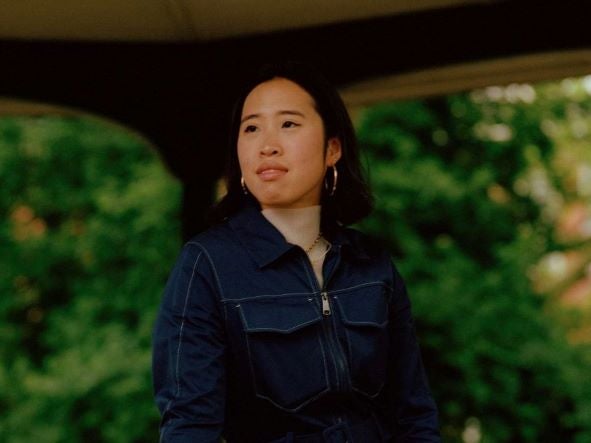
Newly appointed editor-in-chief of Vice and Vice UK Zing Tsjeng believes the brand’s editorial strategy and combining of resources across the UK and US have put it in “good stead” for the economic headwinds hitting this year.
Tsjeng will lead the Vice culture and lifestyle team in the US and UK, managing staff and commissioning and editing stories. Vice News and Vice World News are separate operations.
Vice is a digital global media brand primarily aimed at young people aged 18 to 35 – in other words, the millennials and Gen Z that many other media brands are keen to attract. But Tsjeng told Press Gazette it is not “rocket science”.
She said: “I don’t view it as rocket science and I think a lot of publications try and reverse engineer and knock their heads against the wall trying to be like ‘these Gen Z Zoomers. What do they want? What do they actually want?’ But I think it’s really simple – just, you know, hire them, commission them, give them the resources they need to report the stories they want to report on. And then the rest kind of falls in place.
“Maybe I’m being simplistic but to me it’s always been quite an easy proposition.
“I’ve always loved Vice. I’ve always loved the content that we produce. Coming to work at this company just underlined to me the content that we make has enormous value to our readers and to the demographic and we’re repaid in kind by the kind of engagement that we get.”
According to Vice, its content reaches around 170 million people per month in the UK and US, including on social media.
Vice reaches young people using topics they naturally “zero in on” like sex, dating, relationships, housing, drugs, health, internet cultures, Tsjeng said. On the day she spoke to Press Gazette, she was editing articles ranging from ethical porn and the rise of research chemical drugs to Drag Race star RuPaul’s DragCon in London.
Asked what makes a Vice story, Tsjeng recalled advice she received from one of her early editors at the brand who told her: “We take the serious things lightly and the light things seriously.”
Tsjeng added: “We’ve always been interested in stories from the margins. We’re always interested in stories about sub-cultures about things that many mainstream or conventional publications wouldn’t be interested in or would consider maybe too niche or not interesting for a broad audience.
“But what I’ve found in the past is that young people have an enormous appetite for stories from all over the world, from all different corners of life. And what Vice has been really great at is presenting those stories to them in a way that feels really authentic and real and engaging.”
Tsjeng said hiring young staff to create this content was important and that Vice was the youngest company she has worked at in terms of the average age of people around her.
“If you want to create content that appeals to young people, you’ve got to hire them and you’ve got to give them the support and the resources they need to create the content and do the stories that they want to do,” Tsjeng said.
She added: “I think the second thing is we have to go to the places where young people consume their media,” pointing to Vice’s Tiktok account which launched in March 2022 and has since reached 1.2 million followers. Sister brand Vice World News is on 2.7 million.
“We’ve done that by not just showing them the content that Vice has created in the past but also creating original content made specifically for that platform featuring young hosts,” Tsjeng said. “So I think where a lot of people might say ‘we need to rein back on going to the platforms because these platforms change all the time’, we’ve always been really bullish about meeting our audiences where they are.”
Tsjeng said she was aware the general economic climate for both the media and wider business was “going to be pretty tough going into this year”, but added: “I feel pretty confident that the editorial strategy and the team that we’ve had, especially now that we’ve combined resources across the US and the UK, put us in really good stead… I just think that if we zero in on things that young people love reading, love watching, love consuming, then I think we’ll be fine.”
Vice began its global content strategy combining the teams on its consumer brands to target revenue and audience growth more than three years ago.
Tsjeng has worked at Vice for about seven years including as editor of the female-focused Broadly which was folded into the main Vice brand along with other previous standalone names such as health vertical Tonic and gaming-focused Waypoint in 2019.
She was highly commended in the Arts and Entertainment category at the British Journalism Awards 2020, with the judges saying she “epitomises the strengths of modern journalism – being able to be a one-woman multimedia practitioner across a range of video and writing”.
Vice was launched as a magazine in Montreal in 1994 and has grown to become an international media group. However the journey has not been without its financial challenges and Vice Media was most recently reported by the Wall Street Journal as expecting to miss its 2022 revenue goal of $700m by more than $100m. The company is reportedly pursuing a sale and wants to fetch a valuation of around $1.5 billion.
Email pged@pressgazette.co.uk to point out mistakes, provide story tips or send in a letter for publication on our "Letters Page" blog
